Tzav 5782 – The Proper Conduct in Shidduchim
In Honor of our Parents Alfred & Esther Harary by their Children & Grandchildren
Visit YTATorah.org
Shiur presented in 5780
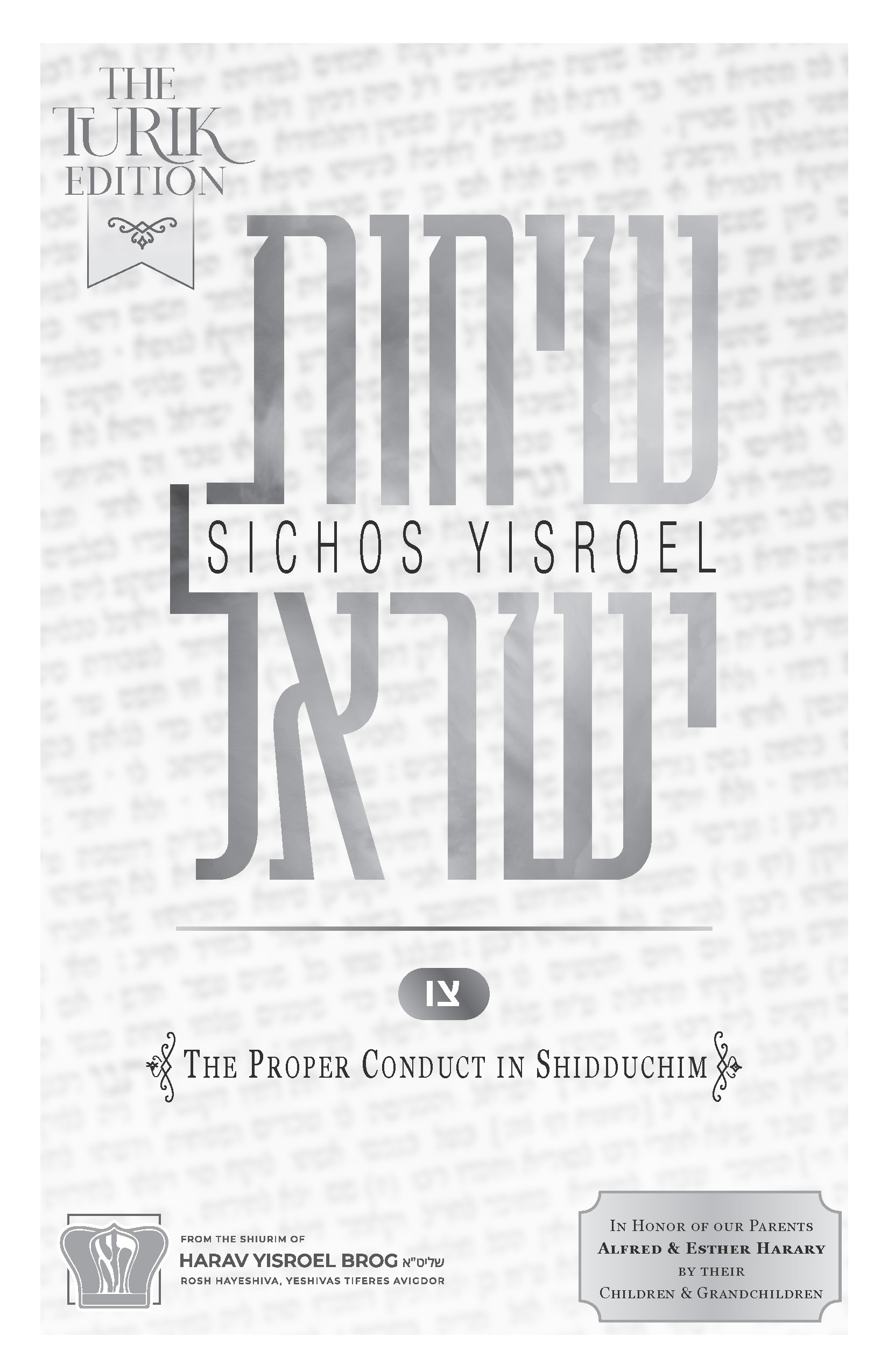
In Honor of our Parents Alfred & Esther Harary by their Children & Grandchildren
Visit YTATorah.org
Shiur presented in 5780
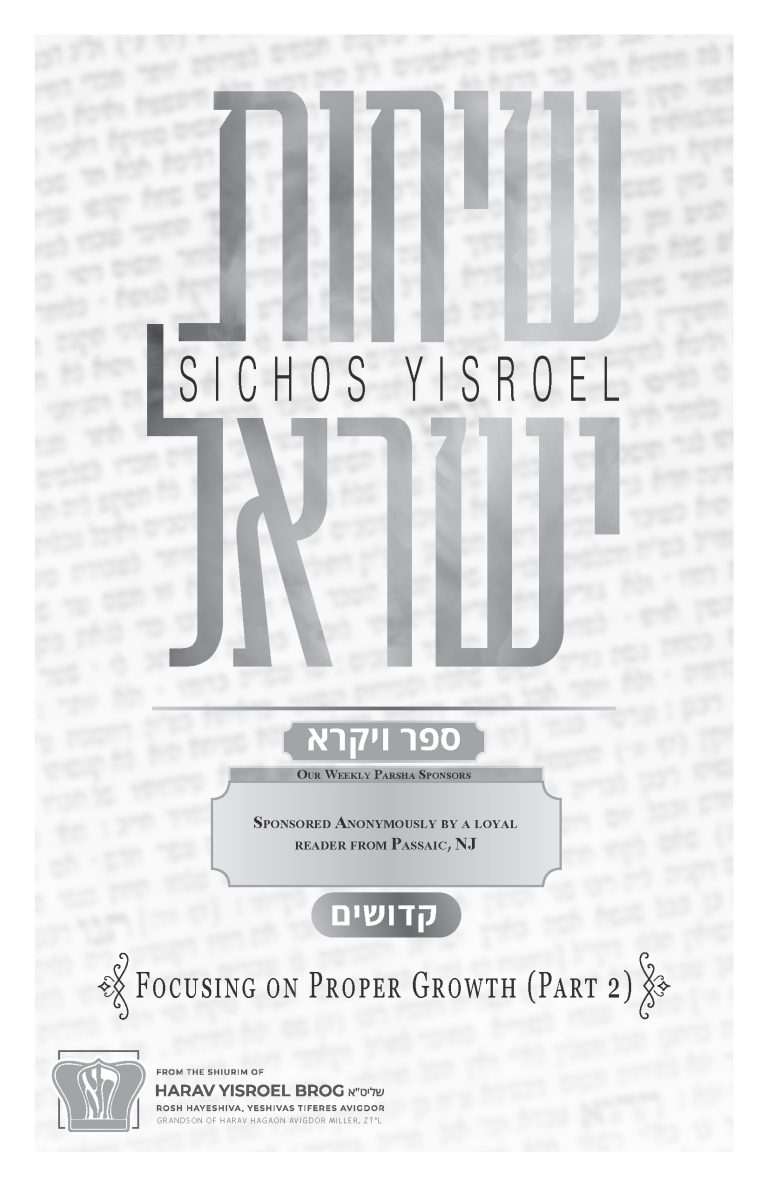
In this week’s parshah, it says “and Hashem spoke to Moshe, saying: ‘Speak to all of Bnei Yisroel…” (Vayikra 19:2). You have to know that this is a very rare introduction. There’s “speak to Bnei Yisroel” but “speak to all Bnei Yisroel” is very unique. Hashem wanted every single part of Klal Yisrael to be involved in this parshah. Rashi points out that for this parashah Klal Yisrael was commanded to come together and to hear directly what Moshe Rabeinu had to say.

The gemara Yevamos (62b) tells us about the 12,000 pairs of talmidim that Rabbi Akiva had. They didn’t learn in one building. They were spread out from a place called Gabos until Antifras – a network of yeshivos under Rabbi Akiva’s leadership. To imagine such a yeshivah is unbelievable.
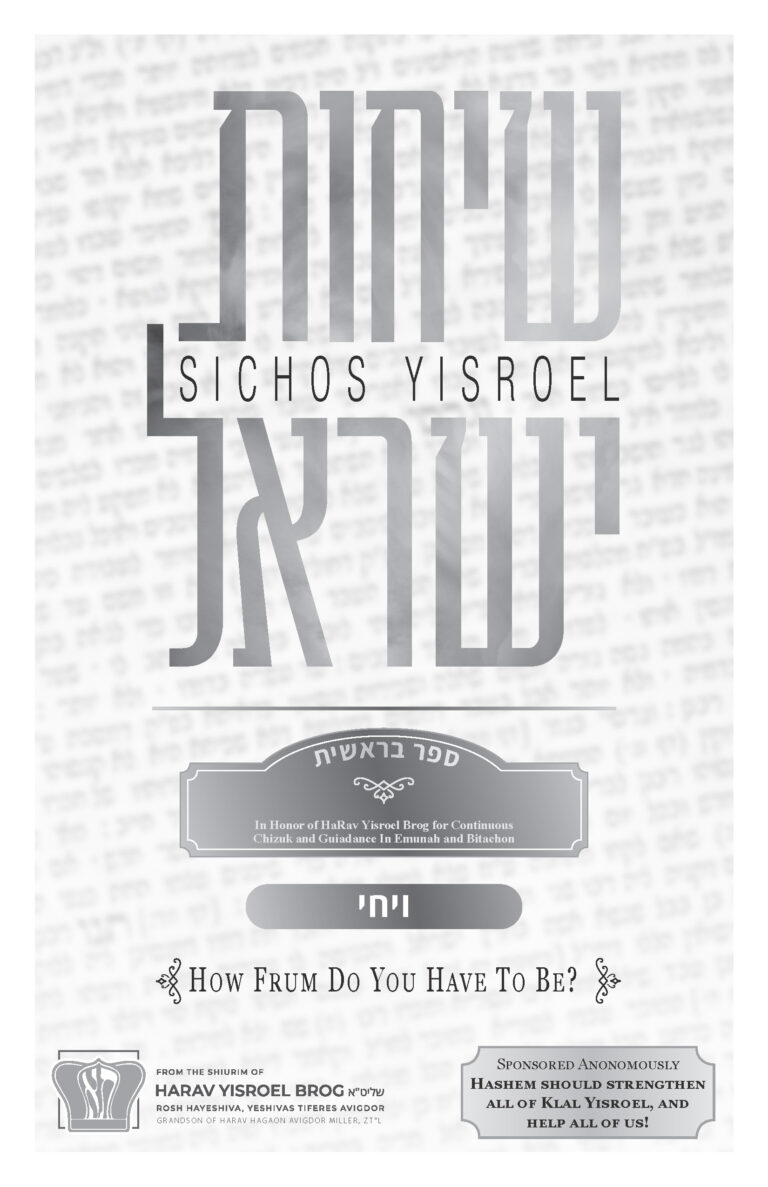
Today, I want to discuss an interesting question that was posed to me. It is something that I experience quite often when meeting people. The question is: “What is the level of Yiddishkeit, of frumkeit, of religion that Hashem expects of me? Does Hashem expect everybody to be committed to the same degree?” It would be very difficult to imagine that Hashem would expect from a little fellow from Chicago the same that He would want from a fellow from Lakewood or Meah Shearim
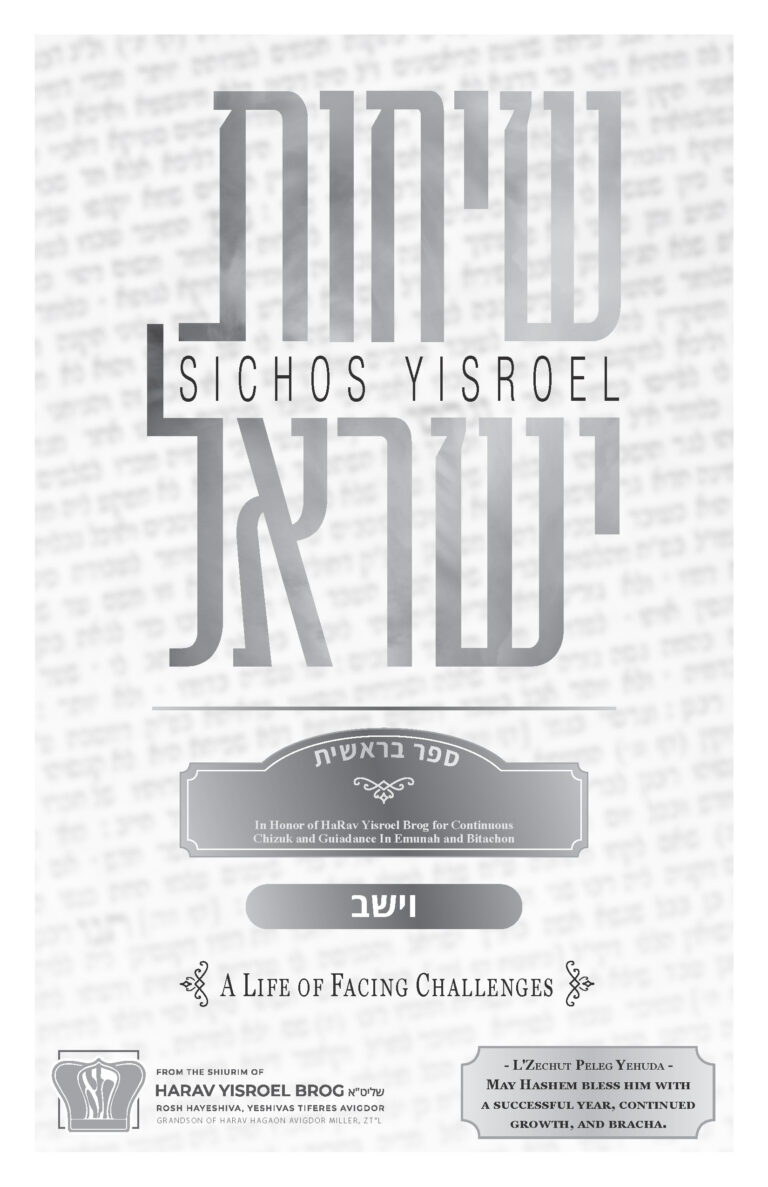
here’s a famous medrash that Rashi brings on the meaning of the word וַיֵּשֶׁב יַעֲקֹב, namely, that the term vayeishev insinuates that Yaakov Avinu wanted rest (Bereishis 37:2). He wanted מרגוע (restfulness). He had been in galus for many years, and was coming back to settle in Eretz Yisrael, the land of his forefathers. The medrash says…
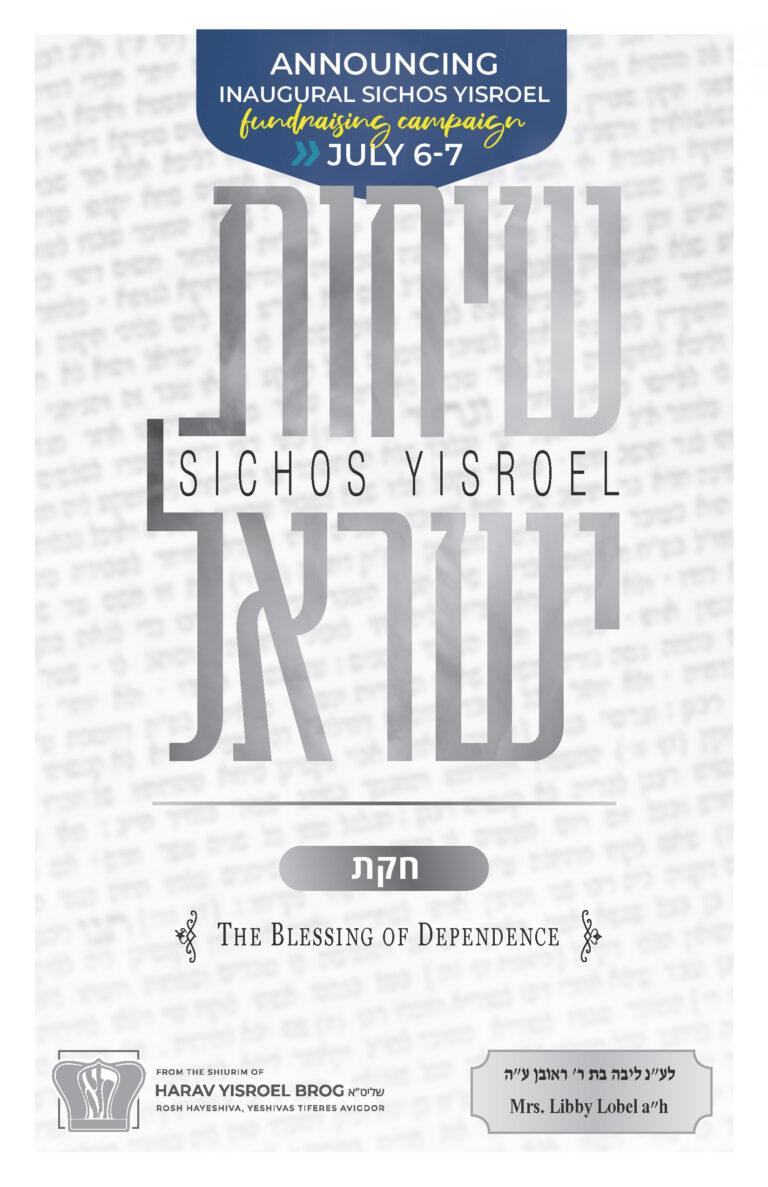
The passuk tells us that after Aharon died, the people lodged a complaint against Hakadosh Baruch Hu. They said they were tired of the circuitous route that they were taking, they were fed up with the difficulties of traveling around for many days and they began to speak against Hashem and Moshe, why did You take us out of Mitzrayim to die in the midbar there’s no lechem and there’s no mayim!
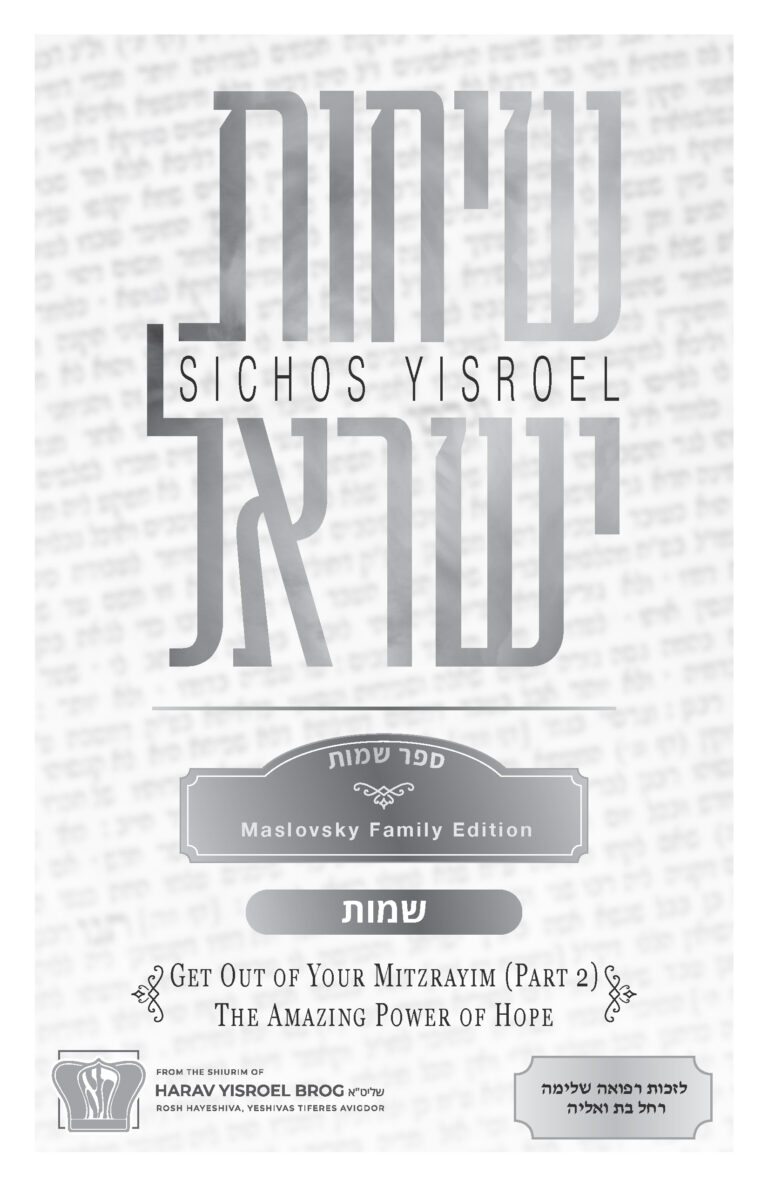
We’d like to stay on the topic of ‘Getting out of Your Mitzrayim’ and today’s shmooze is on a Chazal we find in Parshas Vayechi on the passuk of ‘לישועתך קויתי ה – for Your salvation I long, Hashem (Bereishis 49:18). We mentioned before that Yaakov Avinu said this passuk in regards to Shimshon Hagibor, when he was at a moment of darkness. It was after Shimshon’s hair was cut, his gevurah was gone and he reached out to Hashem one more time. He asked the child holding his hand if he could take him over to the pillars. He wanted to lean on the pillars.